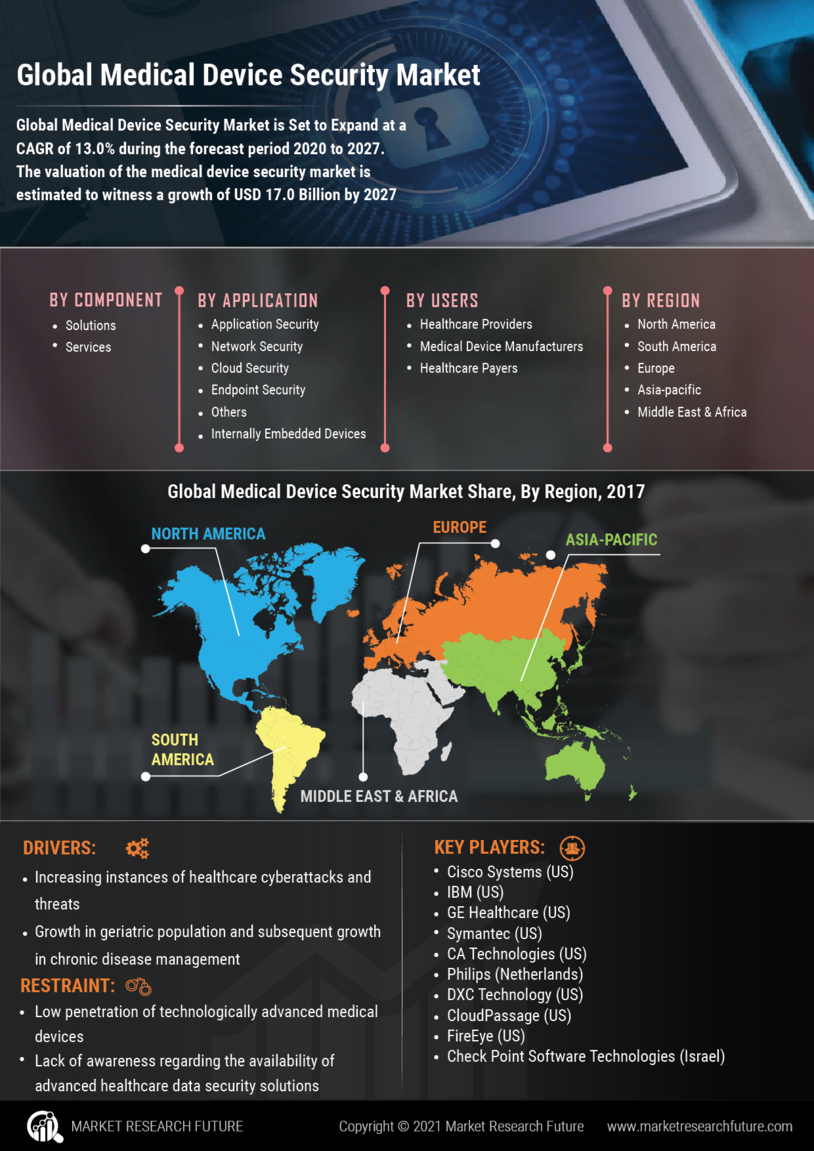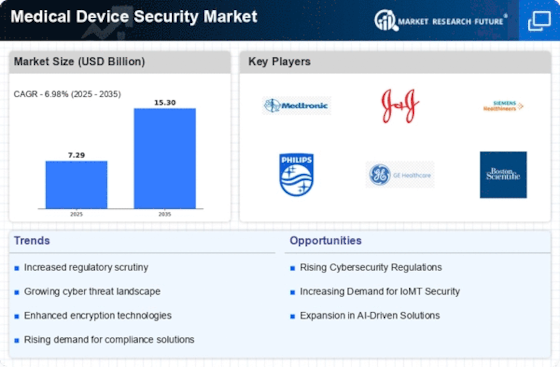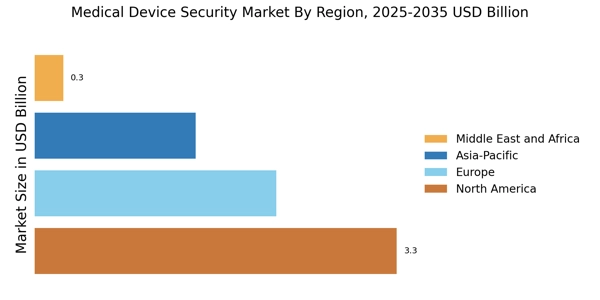Increased Cybersecurity Threats
The Medical Device Security Market is experiencing heightened concern due to the increasing frequency and sophistication of cyberattacks targeting healthcare systems. As medical devices become more interconnected, they present attractive targets for malicious actors. Reports indicate that nearly 70% of healthcare organizations have faced a cybersecurity incident in the past year. This alarming trend underscores the necessity for robust security measures to protect sensitive patient data and ensure the integrity of medical devices. Consequently, manufacturers and healthcare providers are compelled to invest in advanced security solutions, thereby driving growth in the Medical Device Security Market.
Increased Awareness of Data Privacy
The growing awareness of data privacy issues among patients and healthcare providers is a pivotal driver for the Medical Device Security Market. As patients become more informed about their rights regarding personal health information, they demand higher levels of security from medical device manufacturers. This shift in consumer expectations is prompting organizations to enhance their security protocols and invest in advanced technologies to protect sensitive data. Furthermore, studies indicate that nearly 80% of patients are concerned about the security of their health information. This heightened awareness is likely to drive the demand for security solutions within the Medical Device Security Market.
Growing Adoption of IoT in Healthcare
The integration of Internet of Things (IoT) technology within healthcare is significantly influencing the Medical Device Security Market. As more medical devices become IoT-enabled, the potential for data breaches and unauthorized access increases. It is estimated that the number of connected medical devices will reach over 50 billion by 2025, amplifying the need for comprehensive security frameworks. This surge in connected devices necessitates the implementation of stringent security protocols to safeguard patient information and device functionality. Thus, the growing adoption of IoT in healthcare is a critical driver for the Medical Device Security Market.
Rising Demand for Remote Patient Monitoring
The shift towards remote patient monitoring solutions is reshaping the Medical Device Security Market. With the increasing prevalence of chronic diseases, healthcare providers are increasingly utilizing remote monitoring devices to enhance patient care. This trend is projected to grow, with the remote patient monitoring market expected to reach approximately 2 billion USD by 2026. However, the proliferation of these devices raises concerns regarding data privacy and security. As a result, healthcare organizations are prioritizing the implementation of robust security measures to protect patient data, thereby propelling the growth of the Medical Device Security Market.
Regulatory Pressures and Compliance Requirements
The Medical Device Security Market is significantly influenced by stringent regulatory pressures and compliance requirements imposed by governmental bodies. Regulatory agencies are increasingly mandating that medical device manufacturers adhere to specific security standards to protect patient data and ensure device safety. For instance, the FDA has established guidelines that require manufacturers to incorporate cybersecurity measures into their product development processes. This regulatory landscape compels organizations to invest in security solutions, thereby driving the growth of the Medical Device Security Market. Compliance with these regulations is not only essential for market access but also for maintaining consumer trust.

















